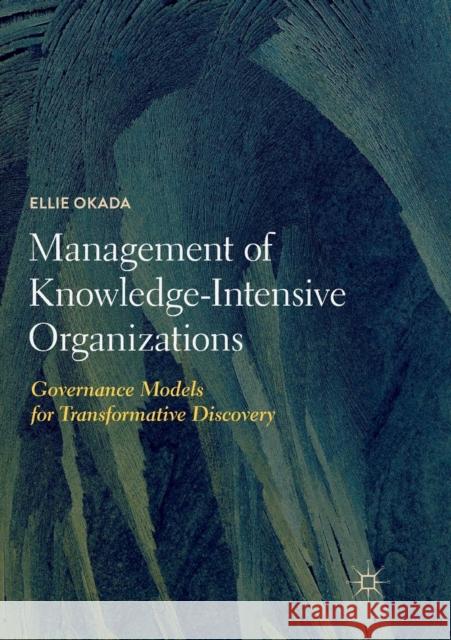Management of Knowledge-Intensive Organizations: Governance Models for Transformative Discovery » książka
topmenu
Management of Knowledge-Intensive Organizations: Governance Models for Transformative Discovery
ISBN-13: 9783030073459 / Angielski / Miękka / 2019 / 202 str.
Kategorie:
Kategorie BISAC:
Wydawca:
Palgrave MacMillan
Język:
Angielski
ISBN-13:
9783030073459
Rok wydania:
2019
Dostępne języki:
Ilość stron:
202
Waga:
0.27 kg
Wymiary:
21.01 x 14.81 x 1.19
Oprawa:
Miękka
Dodatkowe informacje:
Wydanie ilustrowane











